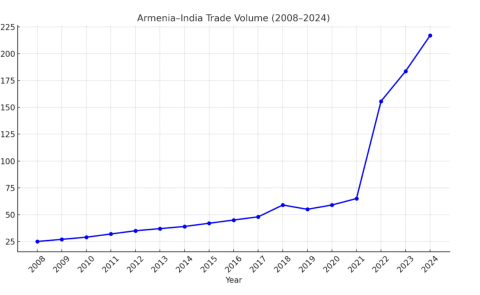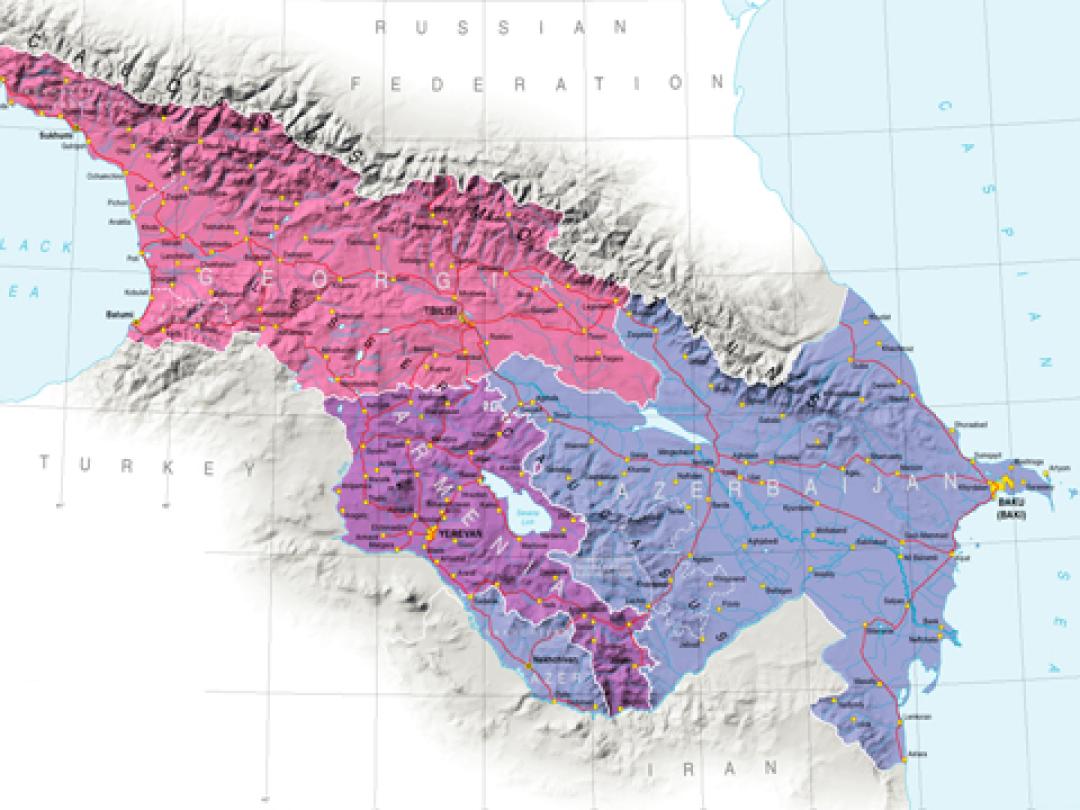
Georgia and Russia’s Invasion of Ukraine

The South Caucasus is a region where Russia’s brutal invasion of Ukraine reverberates with a particular force. Georgia which had a similar experience in 2008 stands out as a country where anti-Russian sentiments are constantly moderated by the government so as not to cause Russian reprisals. The end result of such policy, however, is unlikely to have a positive impact on how Moscow views its problems with Tbilisi.
Amid Russia’s invasion of Ukraine, several countries along Russia’s borders are trying to avoid making tough geopolitical decisions. The calculus is clear: Russian reprisals on small neighboring states, undefended by NATO or other alliances, could be devastating especially the war in Ukraine has not yet reached its final stage.
Georgia is one such country cautiously balancing between explicit political support for Ukraine and the fear of incurring potential Russian military or economic moves. Georgia was mentioned along with Ukraine in Russia’s December 2021 security demands addressed to NATO and the US. This quite naturally puts Tbilisi on an edge. Contingent on the results of Russia’s invasion, the Kremlin might be willing to pose its demands directly to Tbilisi. Those could involve Georgia abstaining from joining NATO. Moscow once invaded its southern neighbor in 2008 and considering its large occupying force in Georgia’s two regions of Abkhazia and South Ossetia, the potential Russian military threat is real.
This wider picture shows the caution the Georgian government professed over the past month. The PM Irakli Garibashvili announced Georgia would not be joining anti-Russian sanctions, would allow large number of Russian citizens in and even openly questioned the effectiveness of Western penalties imposed on Moscow. Russian politicians even praised Tbilisi’s moves. The signals are unmistakable. The fear of Russian military response is a dominating element in the minds of the Georgian politicians.
However tactically clever this approach is, it complicates ties between Ukraine and Georgia. President Zelenskyy recalled Ukraine’s ambassador to Kyiv, while ordinary Georgians feel the country is not doing enough to help Ukraine and expressed unparalleled support by staging large-scale demonstrations and assembling necessary humanitarian support. The opposition accuses the government of siding with Russia especially as the Kremlin-released list of unfriendly countries did not mention Georgia, while listing all Western states.
Georgia is thus in a precarious position. It faces hard geopolitical realities on the ground in the South Caucasus, while trying to stay close to the West. Tbilisi officially applied for EU membership following a similar move made by Kyiv and supported Ukraine in various international fora. But this balancing game is difficult to sustain over the long period of time. First, much will depend on how the military situation plays out in Ukraine. But even if Russia fails to achieve most of its aims, it still has a wide range of tools to pressure Georgia.
In this light, Tbilisi’s foreign policy could be seen simply as postponing the worst-case scenario. Russia has a concrete set of foreign policy goals it wants to achieve in regards to Ukraine and Georgia. The latter’s maneuvering might be helpful but for a time being. Moscow is unlikely to be persuaded by Tbilisi’s change of rhetoric.
New Era?
Politicians in Tbilisi also understand that the country is entering a new period in its foreign relations. A strong response from NATO and the EU coupled with Russia’s military ineffectiveness underlines the fact that the West is not as divided as previously thought. The liberal order remains a viable system. Another development is Russia’s irreversible economic decline. The process will be long-term with palpable effects on Georgia’s economy and security environment. Russia’s retreat might signify something more for the separatist territories of Abkhazia and South Ossetia. A weaker Russia means deep economic troubles for the two territories and opening new avenues for Tbilisi to push for finding at least a limited understanding on economic and security issues with Tskhinvali and Sokhumi.
The invasion of Ukraine highlights how deeply traumatic the issue of sovereignty is in the South Caucasus. Azerbaijan and Georgia deal with separatist entities inside their territories, while Armenia, though is does not have such a problem, has been linked to Nagorno-Karabakh. Geographic closeness to Russia trumps willingness of the three states to elicit open support for Ukraine, however supportive the public has been there. Each fears potential Russian reprisals. This could well be military as in the case of Georgia or economic in case of Azerbaijan and Armenia.
Thus, a new era dawns for the South Caucasus. Two broad scenarios could be discerned. The region might be caught in an increasingly closed geopolitical space where Russia becomes ever more dominant. On the other hand, a period of opportunities could be emerging when a significantly weaker Russia would be unable to be as imposing as it has been over the past two decades. Georgia with its separatist territories is looking at these two broad geopolitical scenarios with fear and hope. Much will depend on the war in Ukraine, but how prepared internally Georgia is will also matter in the long-term. Weakened by political divisions and poor economic performance, a different vision for the country’s development is needed.
Emil Avdaliani is a professor at European University and the Director of Middle East Studies at Georgian think-tank, Geocase.
See Also


Between Tehran and Tel Aviv: Azerbaijan’s Neutrality Dilemma Amid Rising U.S.-Israel Tensions with Iran

From Neorealism to Neoliberalism: Armenia’s Strategic Pivot in Foreign Policy After the Nagorno-Karabakh Conflict

Georgia and Russia: New Turn in Bilateral Relations

3+3 Initiative as a New Order in the South Caucasus

